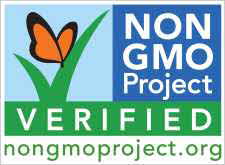GENETICALLY MODIFIED FOOD LABELINGDear EarthTalk: As far as I know, genetically modified foods are not required to be labeled so. Why is this? Don’t we have a right to know what our food is made of?
Rebecca Webster, via e-mail (9/12/2010)
Unbeknownst to most Americans, a majority of the processed foods available in grocery stores today are derived from genetically modified (GM) sources—whereby genes have been taken from one species and insert into another to obtain specific traits or characteristics. Given how new GM technology is—scientists first began tinkering with it in the 1970s but only recently began utilizing it on a wide scale across the food sector—the jury is still out as to whether such products can cause health or environmental problems.
In light of such uncertainties the European Union and dozens of other regions around the world, including Australia and Japan, now require food producers to label GM products clearly so consumers can decide for themselves whether or not to take the risk. Neither the U.S. nor Canada has any such requirements. 
GM’s critics say that food companies have lobbied hard to ensure that U.S. regulators don’t require producers to distinguish GM from traditional foods: “…if a GM crop looks like its non-GM equivalent and grows like it, then it is assumed to be the same, and no safety testing is needed before people eat it,” reports the blog, Food Democracy. Corn, for example, may contain antibiotic-resistant genes or a built-in insecticide—but to the U.S. government “it looks and grows like maize, so it is safe to eat.” The result, says Food Democracy, is widespread ignorance among consumers about what kinds of strange genes may have been inserted into the otherwise mundane foods they are purchasing and eating. “Keeping consumers in the dark has prevented them from making real choices about the food they eat,” says Food Democracy. “Without labels the principles of supply and demand are no longer in effect as consumers can’t send a message to farmers and manufacturers about what they do, and don’t, want to eat.”
According to a survey by the Pew Research Center for the People and the Press, 53 percent of Americans would not eat GM foods if given the choice, while 87 percent believe GM foods should be labeled as such regardless. But since the federal government has no plans to require any such labeling, consumers must take matters into their own hands. To wit, the non-profit Institute for Responsible Technology recently released a free iPhone app called ShopNoGMO which provides consumers with a handy resource they can access right from the grocery aisle for identifying non-GM brand choices across 22 grocery categories.
In addition, leading natural food retailers launched the ‘Non-GMO Project’ in 2005 to develop an independent certification system to help consumers identify non-GM foods where they shop. Whole Foods, Seeds of Change, Nature’s Way and 400 other U.S. and Canadian firms now support the campaign, and today several thousand grocery products sport the easy-to-recognize “Non-GMO” seal. The project also has an ingredient database to help food producers find non-GM ingredients to use in their processed foods. Project leaders hope their work can help prevent new GM crops from gaining a foothold and build a strong non-GM food sector across the country, despite like of federal intervention.

CONTACTS: Pew Research Center for the People and the Press, www.people-press.org; Food Democracy Blog, fooddemocracy.wordpress.com; Institute for Responsible Technology, www.responsibletechnology.org; Non-GMO Project, www.nongmoproject.org. SEND YOUR ENVIRONMENTAL QUESTIONS TO: EarthTalk®, c/o E – The Environmental Magazine, P.O. Box 5098, Westport, CT 06881; earthtalk@emagazine.com E is a nonprofit publication. Subscribe: www.emagazine.com/subscribe
| 